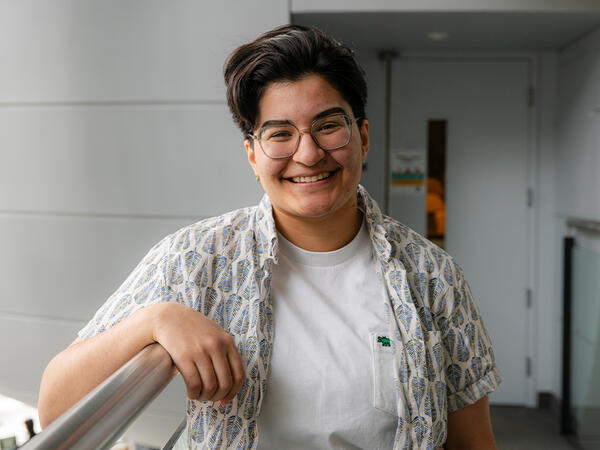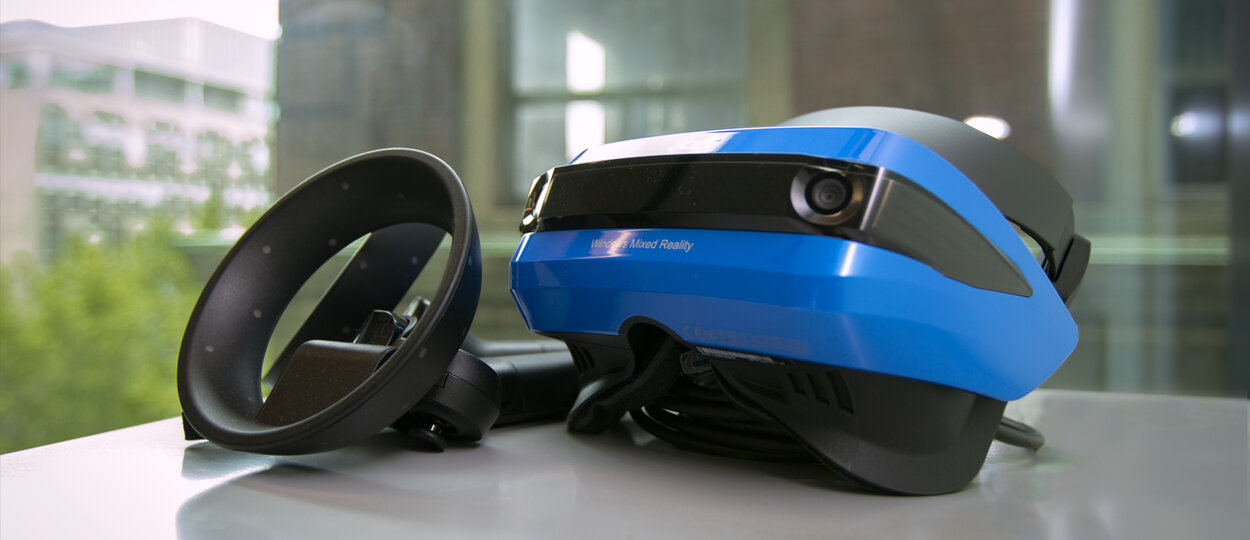Many students experience high anxiety around exams and assessments, especially when the assessment takes place in an unfamiliar environment. Worrying about logistics and the process of the assessment can even distract students from focusing on preparing for the content of the exam.
A project in development at the Leslie Dan Faculty of Pharmacy (LDFP) is piloting the use of virtual reality technology to help support students through high stakes assessments. By allowing students to repeatedly experience the exam process, though not the content, in advance, they can feel more comfortable and focus on the content they are required to learn. Research has shown that doing something many times generally helps to decrease levels of anxiety.
Lachmi Singh, Director, Education Programs and Administrative Services and Sandra Bjelajac Mejia, Assistant Professor, Teaching Stream and Interim Director, Professional Programs, are leading the project, which recently received support from the University of Toronto’s Instructional Technology Innovation Fund (ITIF). The support will allow them to work with the expert staff at the Centre for Teaching Support and Innovation who will design the virtual environment that students will experience.
A 2016 U of T survey found that one of the highest sources of student stress and anxiety is related to exams and testing, and anonymized LDFP data indicates that students are often concerned about high stakes exams. Knowing that pharmacy students face some particularly high stakes exams on their road to becoming practising pharmacists, Bjelajac Mejia and Singh began thinking of different ways that virtual reality technology could support and enhance the student learning experience.
“Our aim is to help demystify these assessments so our students can focus on what they need to know as pharmacists,” says Bjelajac Mejia.
Students will have opportunity to become familiar with the assessment environment
Initially, Singh and Bjelajac Mejia applied for support from the ITIF to develop a simulation of the Pharmacist Qualifying Examining Part II test environment. This exam is an objective structured clinical exam (OSCE), consisting of timed stations, each with a task or problem for the student to complete. The idea stemmed from the desire to familiarize students with the exam logistics to allow them to focus on mobilizing their knowledge and skills to successfully engage in the tested clinical scenarios.
Due to the COVID-19 pandemic, the spring OSCE was cancelled, and Singh and Bjelajac Mejia took the opportunity to use the technology for other high stakes exams in the pharmacy program. One example being developed is lab-based test environments, which may be particularly helpful for orienting new students and providing a practice environment for returning students. In the future they anticipate that students will be able to sign out the virtual reality headsets and simulate the experience repeatedly to become more comfortable with the exam processes.
“Students with accommodations of various kinds may also benefit from the fact that they would have tools to practice and prepare at their own pace”
They also expect that the virtual reality experience could be helpful for students with different learning styles or who require different kinds of accommodations. “Students with accommodations of various kinds may also benefit from the fact that they would have tools to practice and prepare at their own pace,” says Singh. “Having a tool where you could spend time in the environment before actually stepping into it may be reassuring.”
The project is early in development, and the project team aims to have a finished virtual reality simulation available for students by fall 2021. They plan to survey students after they have used the technology to understand whether students found it to be a useful tool, which may also suggest other uses for the technology. “We’re excited about this opportunity to work with the ITIF team of experts to bring this type of educational tool forward,” says Bjelajac Mejia. “Using technology like this is an innovative way of supporting student engagement and success.”
By: Eileen Hoftyzer
More News
Image

Faces of PharmSci: Mahya Rezaeifarimani
Supervised by Prof. Shirley Wu, PhD student Mahya Rezaeifarimani is developing smart nanoparticles to help make radiation therapy work better for brain tumours by targeting low-oxygen areas that often make treatment less effective.
Read More
Image

Dean Lisa Dolovich reappointed for second term
Professor Lisa Dolovich has been reappointed for a second term as Dean of the Leslie Dan Faculty of Pharmacy, University of Toronto, effective July 1, 2025, to December 30, 2030.
Read More
Image

Pharmacy Summer Camp gives high school students insight into pharmacy profession
A new summer camp based at the faculty will give high school students a range of experiences in pharmacy and pharmaceutical sciences.
Read More
